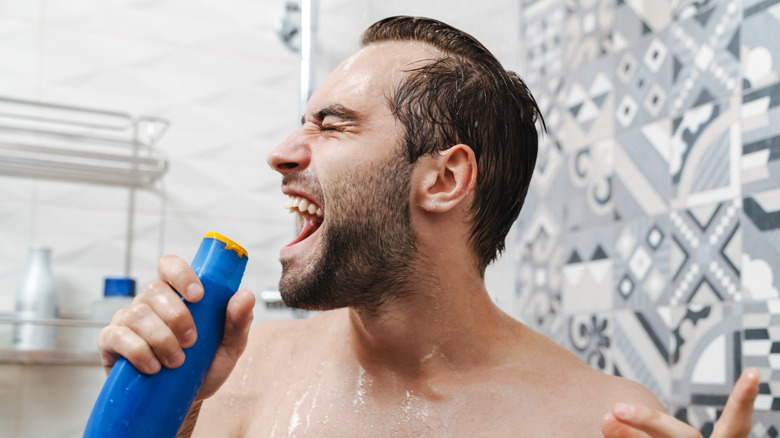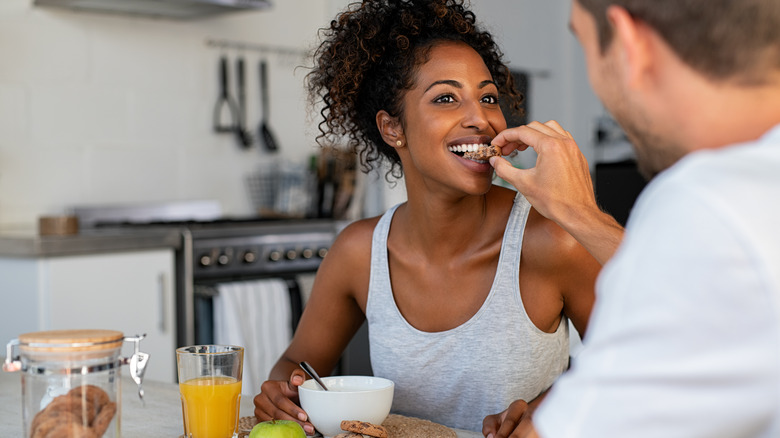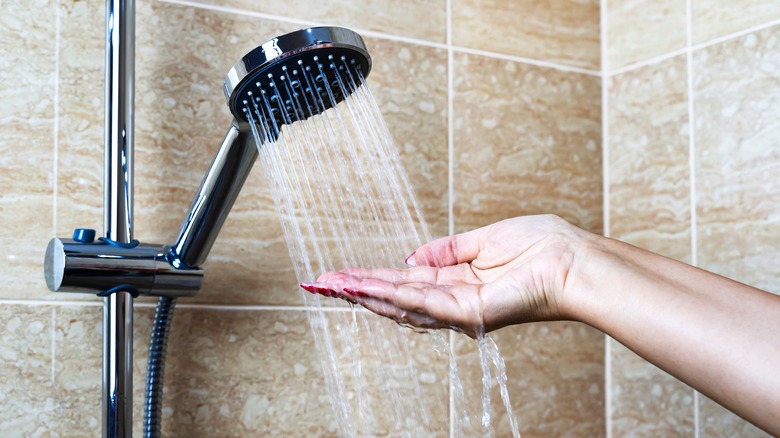
You woke up absolutely famished, so instead of hitting the shower, you indulged in a full-on brunch mode: eggs, pancakes with a side of sizzling bacon, all washed down with piping hot coffee, and some OJ. Now that you’re satisfied, you’re ready to get on with your day, and that rainforest faucet awaits you. However, it might not be the best idea to shower immediately after a meal, according to Healthline. This is because both eating and showering can raise your body temperature, which might interfere with digestion. As a result, you could feel sluggish or uncomfortable.
The source noted, however, that the science surrounding showering post-meal isn’t entirely conclusive, and you might not experience these negative effects if your meal wasn’t an all-you-can-eat buffet of starches and proteins, but rather a light salad or some broth. But after a hefty breakfast, it can’t hurt to take some time to do a crossword puzzle or rinse the dishes before you start rub-a-dub-dubbing.
This is how long you should wait to shower after a meal

Remember when you were a kid, and your mom told you to wait an hour after eating before jumping back in the pool? The same logic applies to post-meal showering. “After meals, try to wait at least an hour before heading into the shower,” gastroenterologist and internist Niket Sonpal, M.D., told Well+Good. “Like swimming, showering can slow down digestion as blood is flowing to other parts of the body.”
If you follow Ayurvedic medicine, make that two hours instead of one. As FirstCry Parenting reported, this philosophy suggests that the “fire” from eating gets misdirected towards the skin if you don’t give your body the time it needs to digest. Interfering with these natural bodily cycles could lead to discomfort and even illness, according to Ayurveda. While we’re listing things to avoid right after a meal, add exercising, brushing your teeth, and sleeping, Healthline noted. These activities need space before and after a meal for optimal results.
Would a cold shower make a difference?

If a hot shower can raise our body temperature and potentially interfere with digestion, does that mean taking a cold shower after eating is a better option? On one hand, cold showers might offer several health benefits, including pain relief, reduced stress levels, and decreased inflammation, according to WebMD.
Unlike hot showers, a cold shower won’t increase your core body temperature, according to Healthline. Nor will it redirect blood circulation away from your digestive tract. Instead, taking a cold shower post-meal may actually boost metabolism, allowing the body to burn fat more efficiently. However, there is no definitive scientific evidence to confirm the pros or cons of an after-meal shower. But if you’re short on time while getting ready for work in the morning and a prompt shower after breakfast is inevitable, you might be better off opting for a cold or room-temperature shower to help keep digestive discomfort at bay.
“`




